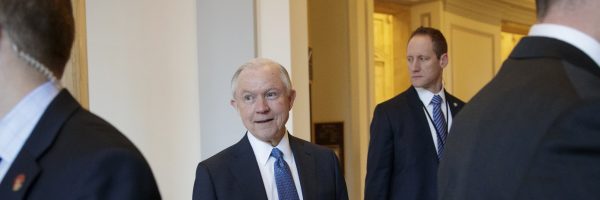Improved Candidates, Working in Puerto Rico, and More – Chicago News

Let’s explore some of the most interesting stories that have emerged from Chicago business schools this week.
Take 5: Tips for Widening — and Improving — Your Candidate Pool – Kellogg Insight
Northwestern Kellogg Associate Professor of Management and Organizations Lauren Rivera and Professor of Finance Paola Sapienza recently published new research that offers discrete advice on how to “widen the talent pool, whether by uncovering your own hiring biases or by turning your sights to often-overlooked candidates.”
1. Be Aware of Biases
According to the article, “Even when we set out to hire on the basis of merit, hidden biases can get in the way. Being aware of those can help us not only act more fairly, but also make the best business decisions.” For instance, “Hiring managers also tend to look for a sense of personal connection with an applicant — with upper-class interviewers generally preferring candidates with similar pedigrees, whether they realize it or not.”
2. Think Small Specialist
According to the article, the late professor of management and organizations Keith Murnighan “found evidence of a bias towards generalists over specialists because hiring managers tend to look for one employee at a time — rather than hire an entire team all at once — it’s hard for them to see exactly which specialists they need.”
Murnighan wrote, “Look at the interactions from a distance and say, ‘What is it that I need to change? What do I know that I’m too close to the process to really see?’”
3. Look to Local Talent
Professors Rivera and Sapienza encourage companies to focus on hiring local talent so “reps are able to build solid relationships with their accounts.” In other words, “firms whose success depends on establishing themselves as a “local” brand should consider the importance of thinking — and hiring — locally.”
4. Value Veterans
Many companies overlook veterans as viable candidates, which is a shame because the military “fosters collaboration, adaptability, leadership, selflessness, and many other qualities that make veterans invaluable in the business world. The article cites research from Kellogg finance professors Efraim Benmelech and Carola Frydman who found that “firms run by CEOs with military experience performed better under pressure than those run by other CEOs.” They also found that “CEOs with a military background were up to 70 percent less likely to engage in corporate fraud compared to their civilian-only peers.”
5. Consider the Ex-Offender
Another population that job searches tend to neglect is ex-offenders. According to the article, “Many employers are reluctant to hire people with criminal records, assuming that they possess fewer skills, are more likely to behave unethically in the workplace, or both.”
“Not only can doing so save money on turnover costs, but from a societal level, it also can help keep ex-offenders from going to jail again.
Research from professor of managerial economics and decision sciences Nicola Persico, finds that “ex-offenders who do get hired are no more likely to be fired than non-offenders — and are about 13 percent less likely to quit, resulting in lower turnover costs for the companies that hire them.”
You can read the rest of the article here.
Testing the Waters: How a Team of MBA Students Put Their Business Skills to Work in Puerto Rico – Mendoza Ideas & News

Notre Dame MBA candidate Corey Waldrep ’19 samples the result of a low-cost water filtration kit in Puerto Rico. On the right is dirty, debris-filled water and on the left is filtered water. (Photo by Matt Cashore/University of Notre Dame)
Last month, Notre Dame Mendoza College of Business MBA students and former military veterans Tyler Shields, Luke Wilson, Dan Weathers, Corey Waldrep, and Robert (R.J.) Dulin, as well as advisor Andrew Wendelborn, traveled to Puerto Rico as part of nonprofit Waves for Water’s initiative to provide global access to clean water in the aftermath of Hurricane Maria, whose 175 mph winds “destroyed more than 80 percent of the island’s power lines and left 3.4 million Americans in the dark” last September.
According to the article, the objectives of project were for “students to gather and utilize important demographic data; gain first-hand experience in working with an NGO partner to provide crisis support; learn a model for creating self-sustaining practices for local populations; and become immersed in best practices for working with indigent populations with dignity, equality and compassion.”
Shields writes, “A lot of what we did over there in Puerto Rico was so-called guerrilla humanitarianism. You don’t necessarily know where the need is or what the need is. You just know that there is a need.”
You can read more from the article here.
As Uber, Lyft Eye Public Offerings, Gies Professor Says Clock Could Work to Smaller Rival’s Advantage – Gies College of Business News
University of Illinois Gies College of Business Clinical Assistant Professor of Finance Rob Metzger took to the blog to offer his expertise drawn from 20 years in investment banking on whether Lyft or Uber should go public first.
According to the article, Uber’s $120 billion IPO is more likely to go public first in late 2019. But Lyft’s roughly $15 billion IPO could beat them to the punch in spring of 2019.
Metzger writes, “I think the Lyft team feels that, even though they’re significantly smaller, they believe that their financial metrics are better, their operating metrics are better, and they haven’t had some of the negative press that Uber has had.
“So [Lyft] may want to be out on the forefront to tell that story, as opposed to being in Uber’s shadow.”
Business School Experts on the Glass Ceiling, and More – Chicago News

Let’s explore some of the most interesting stories that have emerged from Chicago business schools this week.
Here’s a Better Way to Schedule Surgeries – Kellogg Insight
Northwestern Kellogg Associate Professor of Operations Chaithanya Bandi and McCombs’ Diwakar Gupta recently published new research that focuses on how hospital administrators can optimize operating room schedules “while still satisfying surgeon needs.”
According to the article, “the researchers developed an innovative algorithm to improve OR operations, minimizing the number of ORs hospitals had to keep open, while still honoring surgeon requests,” which can drive savings of anywhere from 10-25 percent in OR costs and “lead to lower healthcare costs and thus lower insurance premiums.”
Bandi explains, “In healthcare settings, these kinds of savings don’t translate immediately to consumers. But better utilization of OR capacity helps the hospital see more patients in a shorter period of time, with lower rejections or delays for surgery requests.”
Bandi hopes to apply an “algorithm similar to the OR-optimization model to help data centers improve project efficiency. “Projects like these can take hours to run and incur very large energy costs. By some estimates, as much as 12% of the world’s total energy goes toward these projects.”
You can read more from Kellogg Insight here.
The Glass Ceiling: Three Reasons Why it Still Exists and is Hurting the Economy – Chicago Booth News
In a new working paper entitled “The Glass Ceiling,” Chicago Booth Professor Marianne Bertrand outlines three factors “why the glass ceiling persists in excluding women from top-paying jobs.”
- Women with college degrees often choose to work in fields that offer lower incomes.
- Psychological differences between men and women could account for up to 10 percent of the pay gap.
- The demands for child care, housework and other life chores outside of work fall more heavily on women than on men.
She explains, “In a world where talent is distributed equally among women and men, an economy that does not fully tap into the leadership skills offered by women is necessarily inefficient. Talent is left on the table when women are not placed in leadership positions, and the economy suffers.”

Chicago Booth Professor Marianne Bertrand
You can read more from Chicago Booth News here and check out “The Glass Ceiling” here.
‘We All Lose’ in Trade War, Says Gies Business Professor – Gies College of Business News
The University of Illinois Gies College of Business blog spoke with Professor of Finance Don Fullerton to understand the potential long-term ramifications of recent trade tensions between the U.S. and China.
The U.S. recently announced 10 percent tariffs on $200 billion of Chinese goods [like] industrial machinery parts, food seasonings, and network routers, while China countered with tariffs on $60 billion worth of American meat, chemicals, and clothes, which are set to increase to 10-25 percent by the end of the year.
“There’s going to be significant costs to bear. A lot of economists were arguing strongly against a trade war because in the long run we all lose. We’ll end up paying more for all kinds of goods. We’ll pay more for domestically-produced goods because we don’t get to buy the cheap imports anymore. And the goods we do import, we’ll pay more for because of the tariffs.”
You can read the Gies College of Business News here.
Happiness, Net Worth, and Materialism – Chicago News

Let’s explore some of the most interesting stories that have emerged from Chicago business schools this week.
How To Be Happy Without Earning More – Booth Business Blog
The University of Chicago Booth School of Business recently published a lengthy profile that explores “hedonomics,” a term that professor Christopher K. Hsee appropriated to use as a “counterpart” to traditional economics, which studies how “to extract more happiness from the existing stuff.”
Hsee explains, “Our ancestors had to work to accumulate enough to survive. But now productivity is so high, we don’t need to work so hard for survival.”
In 2008, Hsee and his Booth compatriot Reid Hastie “redefined” the term from its original meaning as the “study of ways to interact with machines.” The article explains that “their version of hedonomics is premised on the idea that people don’t need more resources to be happier; they need to use existing resources differently,” such as a child who grows weary of wooden blocks they initially enjoyed. “Hedonomics suggests the child doesn’t need more blocks to be happy; she needs to change how she plays with those blocks.”
One component of hedonomics is the “hedonic treadmill,” coined by Northwestern’s Philip Brickman and Lehigh’s Donald T. Campbell, which refers to the psychoeconomic effect of what happens when it “takes more and more things to make people happy.”
According to the article, “The hedonic treadmill fires up because people misunderstand what will actually make them happy. [In fact], people gain more happiness when they satisfy their inherent rather than learned preferences—needs rather than wants.”
Hsee’s research could be useful in developing countries where the middle class continues to grow and more developed countries where the middle class has begun to diminish, particularly with the prospect of millions of people becoming idle due to automation looming in the background.
“You can make idle people happy by giving them a reason to ‘play with the existing blocks’ without accumulating more blocks.”
You can read more about hedonomics here.
Aric Rindfleisch’s Research Delves Into Reducing Materialism in Younger Consumers – Gies School of Business Blog
University of Illinois Gies College of Business Professor of Business Administration and Marketing Aric Rindfleisch, who researches consumer values, recently published a paper in the Journal of Positive Psychology, which presents “strategies for reducing materialism in younger consumers.”
According to the Gies School of Business Blog, “The impact of gratitude on adolescent materialism and generosity” has led to two studies that offered “fostering gratitude” as an effective strategy to combat materialism in adolescents.

Aric Rindfleisch, Gies College of Business Professor of Business Administration and Marketing
“In the first study, children and adolescents with a grateful disposition were less materialistic.” The second study found that ‘gratitude journals’ “significantly reduced materialism and also attenuated materialism’s negative effect on generosity.”
You can read more about Rindfleisch’s research here.
New Study Contradicts Notion That Electronic Health Records are Driving Doctors to Quit – Mendoza Ideas & News
Notre Dame Mendoza College of Business Professor of IT, Analytics, and Operations Corey Angst has coauthored a new study due for publication in Information Systems Research, which finds that electronic health records (EHRs) have “increased doctors’ tenure at hospitals.” This discovery stands in direct opposition to certain prominent articles, which assert that EHRs have caused doctors to retire.
“The Mobility of High Status Professionals after the Implementation of Enterprise Information Systems, which was coauthored with the University of Minnesota’s Brad Greenwood and McGill’s Kartik Ganju, examines how EHRs affect the “decision of physicians to continue practicing at their current hospital.”
Angst says, “Results suggest that when EHRs create benefits for doctors, such as reducing their workloads or preventing costly errors, their duration of practice increases significantly.”
“However, when technologies force doctors to change their routines, there is an obvious exodus, though it’s more pronounced with older doctors, especially specialists, and those who have been disrupted in the past by IT implementations,” he adds.
Angst notes that “doctors won’t be scared off as hospitals continue adopting new technologies — as long as they’re not too disruptive to routines.”
You can read more about the research here.
STEM Startups, Notre Dame’s New Master’s, and More – Chicago News

Let’s explore some of the most interesting stories that have emerged from Chicago business schools this week.
Why a Choice Doesn’t Feel Like a Choice When Morality Enters the Picture – Kellogg Insight
In new research co-authored by Northwestern Kellogg Assistant Professor of Management and Organizations Maryam Kouchaki finds that “across cultures, when people view a particular decision as being moral in nature, they don’t feel like they are making a choice at all, and they pay less attention to alternative courses of action.”
In other words, “people who viewed a particular issue as moral experienced a lower sense of choice when making a decision related to that issue, as compared to people who did not view the issue as moral.”
Kouchaki notes, “Even though they did the most amazing thing, it wasn’t like they felt that they deliberated. They felt like they had no choice. Their sense of freedom has been constrained and it has a spillover effect for your actual behavior.”
The study was co-authored by Cornell’s Isaac Smith and Nanyang Technological University’s Krishna Savani of Nanyang Technological University.
You can read the full article here.
Notre Dame launches New Graduate Degree in Business Analytics – Mendoza Ideas & News
Notre Dame’s Mendoza College of Business just announced its new one-year, 31-credit-hour Master’s of Science in Business Analytics (MSBA), designed for “pre-professional students with little or no work experience.”
In a recent release, John W. Berry, Sr. Professor of Business and Chair of the Information Technology, Analytics, and Operations Department, describes MSBA students:
“They were either recent graduates that didn’t have the work experience, or international students interested in the STEM degree who wouldn’t be able to work while earning their degree.”
According to the school, the program’s goal is to “provide a rigorous education in applying analytical techniques to massive data sets to solve business problems — knowledge that has become critically important due to revolutionary advances in information technology.”
Katherine Spiess, Associate Dean for Graduate Programs at Mendoza adds, “In addition to learning about cutting-edge data analytics, our MSBA students have the opportunity to explore the ethical dimensions of collecting and analyzing data to promote business as a force for good in society.”
You can find out more about the brand new Notre Dame Master’s of Science in Business Analytics here.
MakerGirl Thrives and Expands to New Heights – Gies School of Business News
MakerGirl, a nonprofit founded by Gies College of Business students to enable “college students to teach science, technology, engineering, and math (STEM) skills to girls ages 7-10,” recently expanded its operations to include robotics and special coding classes at Northwestern University and announced plans to collaborate with DePaul University.
The goal of MakerGirl’s founders is to “impact 10,000 girls by 2023, including half from underrepresented and rural communities.”

The nonprofit MakerGirl startup is built to help introduce young women with leading STEM graduates / Photo via https://www.kickstarter.com/projects/1501163298/makergirl-goes-mobile-midwest-edition
Julia Haried (’15 ACCY, ’16 MAS) and full-time employee at Deloitte, recently spoke about how invaluable the support of the school has been to the launch and growth of MakerGirl.
“In [my social entrepreneurship] class, the idea was born and incubated by myself and co-founder, Elizabeth Engele, and supported by course instructors. The idea was further launched in the iVenture Accelerator, a Gies-supported venture accelerator that gave us $10,000, mentorship, and a summer to grow MakerGirl’s impact at the Research Park. Because of these experiences, I was challenged and encouraged to solve a big social problem.”
Co-founder Elizabeth Engele also adds, “It’s so much fun and fulfilling to build a program that creates a meaningful experience for girls right now that also impacts their future. We have witnessed girls self-identify as MakerGirls after the program, which is incredibly powerful for themselves, their families, and their communities.”
She continues, “MakerGirl brings me the greatest joy when I see young girls get excited about science, technology, engineering, and math, and literally shift who they perceive themselves to be in the world.”
You can read more from the interview here and visit MakerGirl’s official site for more information.
Jeff Sessions Learns Lessons from Notre Dame, and More – Chicago News

Let’s explore some of the most interesting stories that have emerged from Chicago business schools this week.
Stop Flailing and Start Delivering – Kellogg Insights
Of the “five common issues that impede career progress” Northwestern Kellogg clinical professor of innovation and entrepreneurship Carter Cast writes about in his new book, The Right (and Wrong) Stuff: How Brilliant Careers Are Made—and Unmade, the one issue that people most frequently self-identify is struggling to keep up.
Cast writes, “Careers can derail when people don’t deliver on promises. This can be a real problem because fellow workers start to distance themselves when they think you can’t be counted on.”
Cast offers five suggestions for how to “get organized and get ahead.”
1) Be Clear on What’s Expected of You
“Being clear with your boss on what success looks like is really important for setting expectations and ensuring you’re aligned. What are your goals and objectives for the year? What are the key initiatives that map to those objectives? What are the timelines for those initiatives, and what sort of resources will you need?”
2) Understand Your Organization’s Workflow Process
Cast says creative types tend to “overpromise and underdeliver” because “their eyes are typically bigger than their stomachs.” To these folks, Cast says, “Decide which tasks will really move the needle for your organization, and focus on those first. You can’t treat every message in your inbox equally.”
3) Be Intentional about Prioritizing Your Work
Cast suggests “breaking your day into segments and tackling challenging work during times when you are sharpest and most productive.” For instance, if your brain is most active between six and ten in the morning, for instance, that may not be the best time to respond to noncritical emails.”
YOU MAY ALSO LIKE: Kellogg Admissions Director Shares Insights on 2019 MBA Application
4) Learn How to Say “No”
Cast writes that people-pleasers “tend to take on more than they should—their default response is, “yes, why not?” But learning when to say “no,” and learning to do it tactfully, is critical for preserving valuable time and energy.”
5) Look for Opportunities to Delegate
Cast says, “We tend to think the best person to perform a given task is ourselves. In many cases, you have to learn to let go a bit. Things won’t go exactly the way you’d like, but you have to move forward and avoid needless distractions.”
You can check out the full article here.
Larry Gies Urges 2018 Graduates to “Find Your Way” – Gies School of Business Blog
Madison Industries founder, president, and CEO Larry Gies used his speech at Gies’ recent Convocation ceremony, which honored the “1,824 bachelor’s, master’s, and doctoral degree recipients,” as an opportunity to inspire graduates to spend time pinpointing their passion for what they do—or their “why.”
Gies, who donated $150 million to the University of Illinois last year, thus, changing the name of the business school in his honor, explains, “Knowing your why is critical. It is the ability to connect the dots between what you’re doing each and every day and a higher purpose. Our why is what drives us, inspires others around us, and allows us to persevere during those difficult moments. To put it simply, when you find your why, you love what you do.”
Gies adds, “I was forty-five before I found my why.”
Find out more about Gies’ speech here.
I’m a Biblical Scholar. It’s Clear That Jeff Sessions Needs a Bible Lesson – Mendoza Ideas & News
Notre Dame Mendoza business ethics professor and former Jesuit priest Joseph Holt contributed an op-ed to a recent issue of Fortune in which he took Attorney General Jeff Sessions to task for his “use of scripture to defend the Trump administration’s immigration policies.”
Professor Holt writes, “Sessions is pursuing justice understood as the strict and impartial application of the law. That shriveled understanding of justice is captured in the statement by Homeland Security Secretary Kirstjen Nielsen: ‘In the United States, if you break the law, you go to jail and you’re separated from your family.’
He adds, “From that viewpoint justice and mercy are opposed, because mercy could impede the administration of strict justice. But tzedek [the Hebrew word for “justice”] and its derivative tzedakah (which is a commandment to give as an act of social justice), mean justice and mercy working in unison.”
You can read the full article here.
Finding A Real Estate Career with a Chicago MBA

The number of MBAs who pursue a real estate career may not be as large as those in finance or consulting, but even still, some of the most prestigious business schools in the Chicago metro offer MBA programs that specialize in the field. Continue reading…
